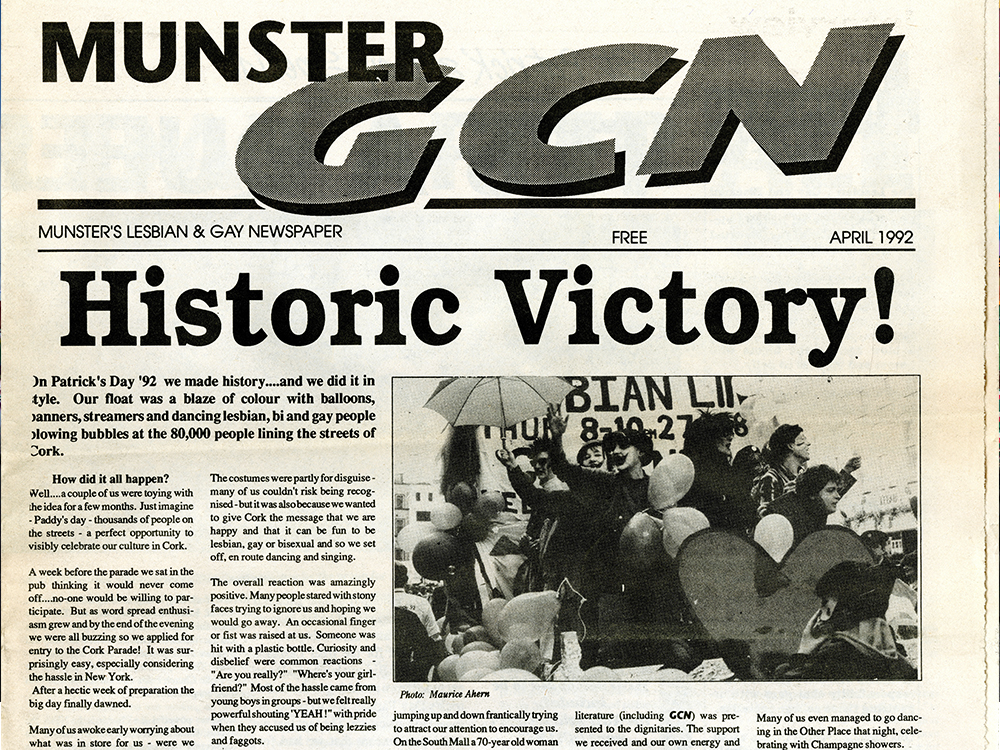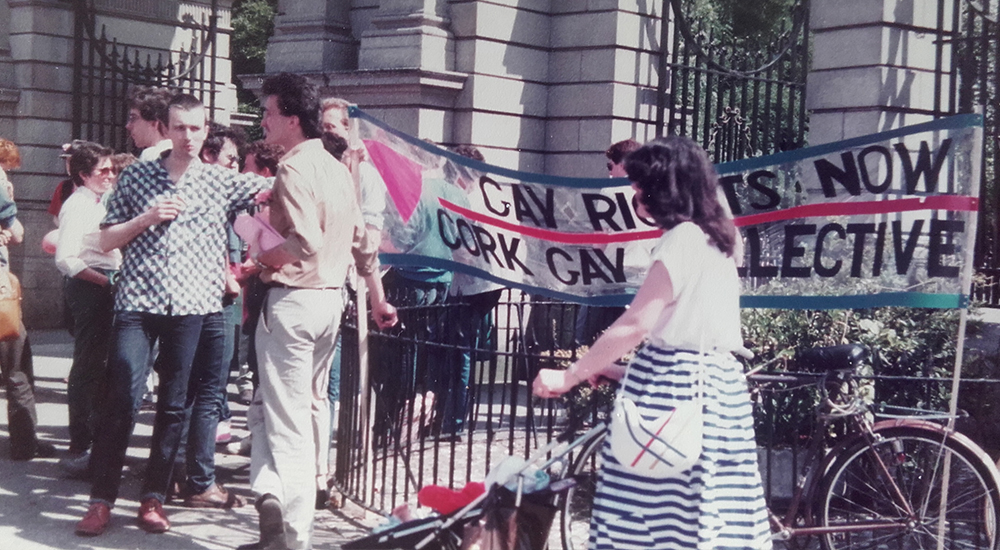The Cork LGBT Archive has been digitally preserved for the future in the Digital Repository of Ireland (DRI). This collection represents Cork’s rich history of LGBT+ activism and community formation and includes digital copies of objects that are often lost or damaged, such as brochures, newspaper stories, and photographs. With long-term digital preservation, the DRI is ensuring that these digitised versions stand the test of time.
The Digital Archive has been developed by Orla Egan, Cork LGBT+ activist and author of ‘Queer Republic of Cork’. Egan commented on the importance of digital preservation, following the Archive’s win in DRI’s competitive ‘Community Archive Scheme’:
“The DRI has the resources and expertise to develop comprehensive preservation policies and practices. For community archives, like the Cork LGBT Archive, this provides the best option for ensuring the long-term digital preservation of our collections.”
Ok, so here's the news!
The new Cork LGBT Archive collection digitally preserves and provides access to a wealth of information relating to the history of the #Cork #LGBT communities, including rich #ephemera such as posters and leaflets: https://t.co/Q14xozzzc9 @OrlaEgan1 pic.twitter.com/Sd41ZnO5vS
— Digital Repository of Ireland (@dri_ireland) October 15, 2019
She also commented on the wider significance of being included in the DRI: “It is important and symbolic for previously marginalised communities, like the Cork LGBT community”. She elaborated that inclusion is “bringing these communities in from the margins and into our national heritage repositories.”
Speaking to the newly published collection, Director of DRI Natalie Harrower said:
“We are thrilled to see the Cork LGBT Archive preserved and now published in the Repository. The significant work that Orla put into building this collection is only equalled by the ongoing value it provides in broadening out the social, cultural, and political history of Ireland. DRI is committed to supporting Ireland’s cultural heritage through preservation and access to digital materials and is developing a diversity and inclusion policy for release in 2020. The publication of the Cork LGBT Archives marks one step in this direction.”
One object from the Archive’s collections is the Munster Gay Community News’ coverage of the LGBT float in the 1992 Cork Patrick’s Day parade.

Egan explains:
“The first Irish LGBT float in a Patrick’s Day parade took place in Cork in 1992. The float was organised in response to the exclusion of ILGO (Irish Lesbian and Gay Organisation) from marching in Patrick’s Day parades in New York and Boston. It was also an opportunity for greater visibility for the LGBT community in Cork. The colourful float won the prize for Best New Entry in the Cork Patrick’s Day Parade.”
Visit the DRI repository to browse, download, and use the rich and varied Cork LGBT Archive collection here.
© 2019 GCN (Gay Community News). All rights reserved.
Support GCN
GCN is a free, vital resource for Ireland’s LGBTQ+ community since 1988.
GCN is a trading name of National LGBT Federation CLG, a registered charity - Charity Number: 20034580.
GCN relies on the generous support of the community and allies to sustain the crucial work that we do. Producing GCN is costly, and, in an industry which has been hugely impacted by rising costs, we need your support to help sustain and grow this vital resource.
Supporting GCN for as little as €1.99 per month will help us continue our work as Ireland’s free, independent LGBTQ+ media.
